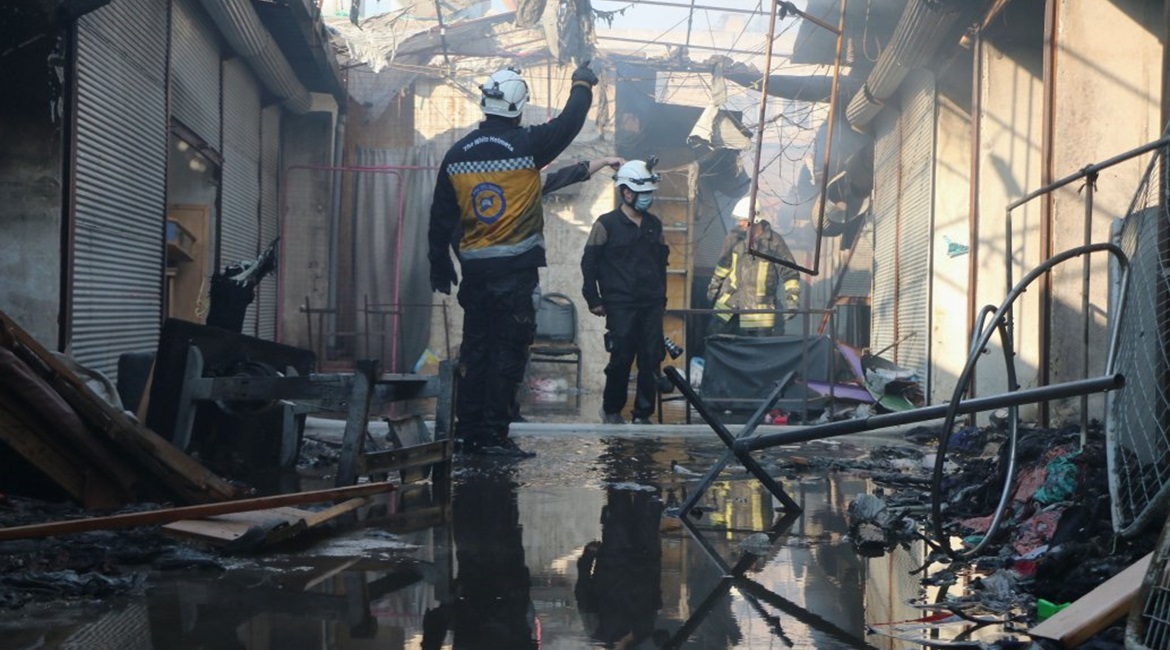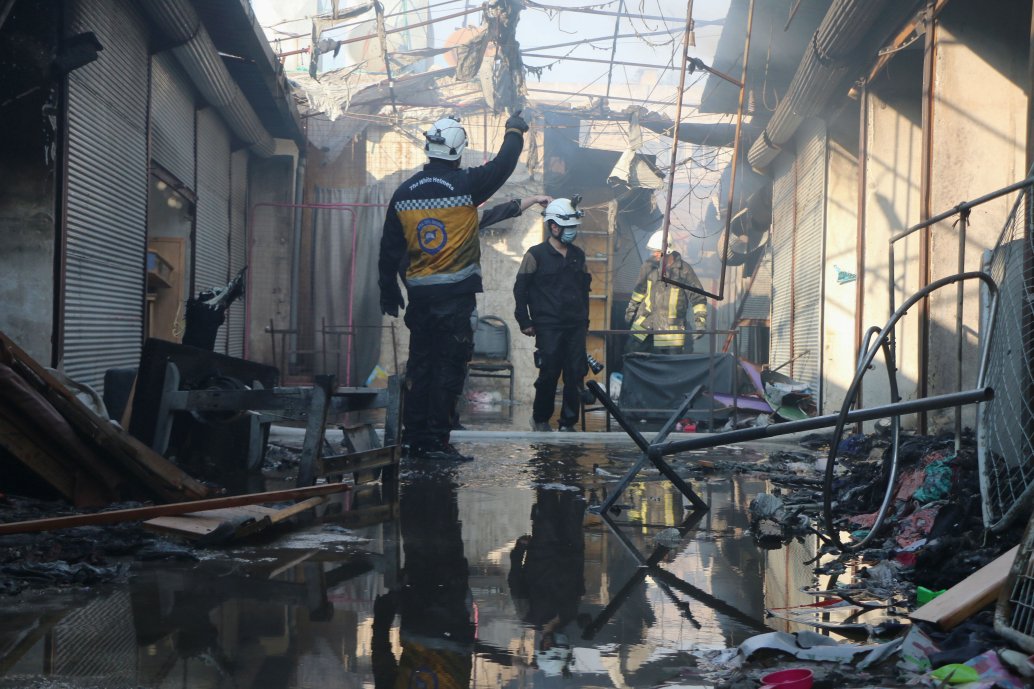
On 28 April, a vehicle-borne improvised explosive device (VBIED), comprised of a fuel truck loaded with gasoline barrels rigged to a grenade, was detonated in the city of Afrin in Syria’s Aleppo governorate. At least 53 people, including an unspecified number of Turkish-backed militants were killed, and at least 50 others were wounded. The device detonated near an open-air market in the central Souk Ali area, close to the local government offices, where people were shopping in preparation for breaking the Ramadan fast, although it was unclear whether this was the intended detonation location.
Although the 28 April attack was notable in terms of lethality, it was the third fatal VBIED attack in Afrin since the start of 2020 – with attacks killing six civilians in February and one in March – showing a clear trend in both the deployment of VBIEDs by militants in Afrin and their willingness to risk civilian casualties.

The market in Afrin in Syria’s Aleppo governorate, in the aftermath of a vehicle-borne improvised explosive device (VBIED) attack on 28 April 2020. (Getty Images)
Afrin insurgency
Since the conclusion of the Turkish military-led Operation Olive Branch in March 2018, which targeted Kurdish Yekîneyên Parastina Gel (YPG), forces in the area, Afrin district has been under the control of the Turkish military and Turkish-backed al-Jaish al-Watani al-Suri (Syrian National Army: SNA) militants.
Immediately after the attack, the Turkish government accused Turkey-based Kurdish militant group the Partiya Karkerên Kurdistanê (PKK), which it considers to be organisationally contiguous with the YPG, of responsibility for conducting the attack. The YPG denied responsibility and the Syrian Democratic Council – the political wing of the YPG-led Qiwaat Suriyya al-Dimoqratiyya (QSD), or Syrian Democratic Forces – condemned the attack. Jane’s
Looking to read the full article?
Gain unlimited access to Janes news and more...






